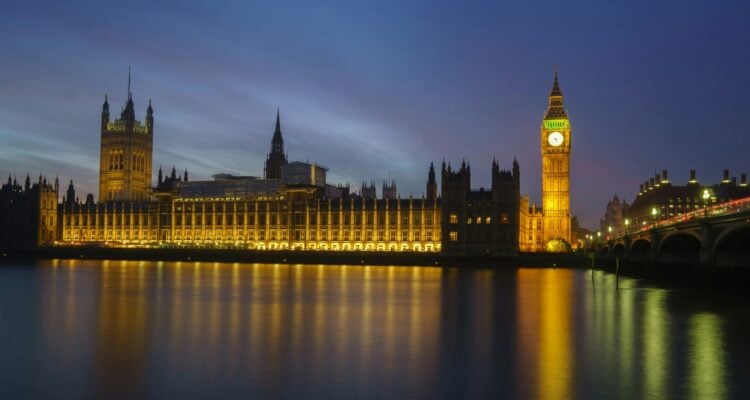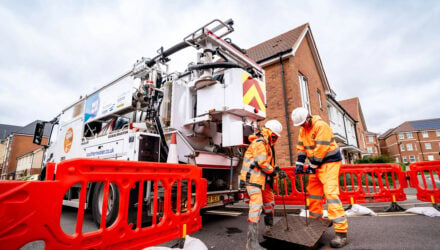The Budget 2024
On Wednesday, 30th November, Rachel Reeves, Chancellor of the Exchequer, delivered the first Labour budget in 14 years. This was no economic tinkering around the edges, but a major economic route change that have wide implications to the UK economy; many of which will not become apparent for some time.
The primary objective was to raise over £40bn in tax revenue for major infrastructure expenditure on public services such as the NHS, schools, roads and transport, and allied to this an increase in borrowing for major investment in new capital projects.
Response to the budget has been swift and quite varied.
Fuel Duty:
The freeze on fuel duty has been widely welcomed. RHA MD Richard Smith said, “The RHA has long campaigned on this issue, so we welcome today’s brave decision from the Chancellor Rachel Reeves to continue the freeze in fuel duty. Haulage and coach businesses are essential to economic growth, but with operating costs increasing and margins tightening, the last thing these vital businesses needed was a rise in fuel duty.”
A spokesperson for the BVRLA said, “By maintaining the fuel duty freeze, the government offers predictable fuel costs, helping fleet managers control expenses and avoid passing on additional costs to customers.”
However, Russell Olive, UK Director of vaylens, said, “The decision not to make it more expensive to run petrol and diesel cars holds us back from making real progress in the decarbonisation of UK transport. This could have been a fiscal incentive to spark interest in switching to electric vehicles among leasers’ and private buyers.
Matthew Briggs, CEO at business fuel card provider, Right Fuel Card:Edenred commented, “We welcome the announcement of a continued fuel duty freeze and an extension of the 5-pence-per-litre price cut. Whilst, positively for consumers, fuel prices are on a downward trajectory, there is still work to be done to support those struggling to cover costs.
“Whilst wholesale fuel prices are out of the Government’s hands, we’re hopeful that prices continue to fall for the rest of the year and beyond, as this would benefit both customers and businesses.”
Vehicle Excise Duty and the HGV Levy:
Richard Smith, MD, RHA, said, “We are disappointed that the Heavy Goods Vehicle (HGV) VED rate and the HGV Levy will rise with RPI from 1 April 2025. This will add further cost pressure on vehicle operators at a time when the industry is facing a range of other rising costs.”
Business Rates reform:
Richard Smith, commented, “The proposed changes to Business Rates to introduce a higher multiplier for the most valuable properties could unfairly penalise logistics businesses who operate large warehouses. Logistics premises including warehouses require a larger footprint but offer a relatively low return on land values. Logistics businesses need a rates system that supports growth and incentivises success by not punishing those that are seeking to move to larger premises or operate in in high-cost areas.”
Employers’ Costs:
The RHA stated, “Operators are clear the proposed rise in Employers’ National Insurance to 15% from 6 April 2025 will make hiring staff and creating jobs harder.
“More than 95% of the haulage industry are small and medium sized companies who cannot afford more costs at a time when insolvencies in our sector are at a record level. We want the policymakers to work with us to minimise the financial burden placed on businesses, not add to them.
“We therefore welcome the Chancellor’s commitment to increase the employment support allowance for small businesses by a record amount, more than doubling it from £5,000 to £10,500.
“Increasing the minimum wage above inflation will impact all costs within the supply chain with businesses will have to accommodate this increase against a challenging economic backdrop.”
David Bushnell, Director of Consultancy and Strategy for Fleet Operations, said, “[N]otes the added pressures on employers following rises in both Employer National Insurance Contributions (NIC) and the National Minimum Wage (NMW).”
Stuart James, Chief Executive of the Independent Garage Association (IGA), commented, “The IGA is pleased to see the small business rate freeze maintained for now, which helps our members with the confidence to invest and innovate while delivering essential services to motorists across the UK.
“With the upcoming increase in the National Minimum Wage to £12.21 and a rise in apprentice wages, we are concerned that these rising costs may make it difficult for independent garages to justify hiring apprentices. While we recognise the intention to make apprenticeships a more attractive pathway into skilled employment, this significant wage increase could place a strain on businesses operating on tight margins.
“The increase in National Insurance contributions (NICs) from 13.8% to 15%, coupled with a lowered payment threshold, poses a significant financial burden for independent garages. This rise restricts their capacity to hire and upskill employees, potentially affecting investment, growth, and recruitment. We urge the government to reconsider these increases, as they may ultimately jeopardize the long-term stability of this essential sector.”
General Expert Review:
Barney Goffer, UK Product Manager at Teletrac Navman, commented: “The government was very clear that this was going to be a tough budget with more taxation than previously mooted and it was.
“While the frozen fuel duty is a pleasant surprise, the new regulations around National Insurance Contributions (NIC) are going to be a challenge for many fleets.
“Kickstarting economic growth relies on multiple sectors operating efficiently and cost-effectively – the transport sector being a major factor in this.
“While the decision for employers to pay NIC on anything over £5,000 when previously it was £9,100 could help raise a large amount, it means increased pressure for fleets, especially the transport sector which is already running on low margins to absorb.
“The obvious thing to do would be to pass the rise in tax onto the customer but in a highly competitive transport sector there’s always someone willing to run at even lower margins.”
David Bushnell, Director of Consultancy and Strategy for Fleet Operations, said, “[The] budget tries to maintain a balance between rising operational costs and has strengthened support for sustainable and efficient transport options. Overall, this Budget will have come as a relief to fleet operators. While businesses will face increased expenses, they can also benefit from stable fuel costs and improved infrastructure through road maintenance improvements. Further good news is that salary sacrifice schemes remain an attractive and viable proposition.”
Jon Lawes, Managing Director at Novuna Vehicle Solutions, one of the UK’s largest fleet operators, said, “Today’s Budget delivered unexpected relief for drivers and businesses, with fuel duty remaining frozen for another year.
“Although the £2 billion funding for the automotive sector to support the transition to Electric Vehicles coupled with a commitment to move the needle on green hydrogen are welcome developments on the roadmap to zero emission mobility, incentives for personal use drivers beyond fleets to make the switch needed to go much further.”




















